- Home
- Lisa Kleypas
Love in the Afternoon Page 28
Love in the Afternoon Read online
Page 28
And together they slept until morning.
Epilogue
26 June 1857
Hyde Park, London
Christopher waited with the Rifle Brigade in a large space on the northern side of Hyde Park, a half mile broad and three quarters of a mile long, reserved for nine thousand men of all arms. There were Marines, Dragoons, Rifles, Hussars, Life Guards, Highlanders, and more, all glittering in the abundant sun. The morning was hot and breezeless, promising to roast the hundred thousand people in attendance at the very first Victoria Cross ceremony.
The soldiers in their full dress uniforms were already miserable, some from the heat, others from envy. “We’ve got the bloody ugliest uniforms in the Empire,” one of the Rifles muttered, casting a glance at the infinitely more splendid dress of the nearby Hussars. “I hate this gloomy dark green.”
“Pretty target you’d make, crawling forward of the front lines in bright red and gold,” another Rifle replied in a scornful undertone. “You’d have your arse shot off.”
“I don’t care. Women like red coats.”
“You’d choose a woman over not having your arse shot off?”
“Wouldn’t you?”
The other man’s silence conceded the point.
A faint smile curved Christopher’s mouth. He glanced at the enclosure near the Grosvenor Gate galleries, where seven thousand ticket holders had been seated. Beatrix and the rest of the Hathaways were there, as well as his grandfather, and Audrey, and several cousins. After this elaborate and unwanted presentation was over, Christopher and the entire mass of his family and in-laws would return to the Rutledge Hotel. There would be a private dinner with feasting and merriment, and Harry Rutledge had hinted at some special entertainment. Knowing Rutledge, it could be anything from a trio of opera singers to a troop of performing monkeys. Only two things were certain—the Hathaways were in London, and it would be a wild, mad romp.
Another guest would attend the family dinner at the Rutledge—Mark Bennett, who had sold his army commission and was preparing to take the reins of his family shipping business. It had taken months for Bennett to recover from the trauma of his wartime experiences, and the process was far from complete. However, a long stay in the Phelan household had done him a world of good. Piece by piece, Bennett had put his psyche back together in a necessary but painful process. With the support of understanding friends, he had gradually come back to himself.
Now more and more, Bennett resembled the dashing and quick-witted rogue he had once been. During long vigorous rides through the countryside, he had acquired healthy color and vitality, and had regained lost muscle. Even after returning to his family estate in Gloucestershire, Bennett often visited Christopher and Beatrix at Riverton. It so happened that during one of these visits, he had met Audrey, who had come to stay a fortnight.
Audrey’s reaction to the tall, dark-haired ex-soldier had been more than a little perplexing. Christopher hadn’t understood why his normally sanguine sister-in-law became so shy and clumsy whenever Bennett was near.
“It’s because he’s a tiger,” Beatrix had explained in private, “and Audrey is a swan, and tigers always make swans nervous. She finds him very attractive, but she doesn’t think he’s the kind of gentleman she should keep company with.”
Bennett, for his part, seemed quite taken with Audrey, but every time he had made a careful advance to her, she had retreated.
And then with startling quickness, the two of them seemed to have become fast friends. They went on rides and walks together and corresponded frequently when they were apart. When they were both in London, they were always seen in each other’s company.
Mystified by the change in their formerly awkward relationship, Christopher asked Bennett what had happened to alter it.
“I told her I was impotent from old war wounds,” Bennett said. “That calmed her nerves considerably.”
Taken aback, Christopher had brought himself to ask gingerly, “Are you?”
“Hell no,” came Bennett’s indignant reply. “I only said it because she was so skittish around me. And it worked.”
Christopher had given him a sardonic glance. “Are you ever going to tell Audrey the truth?”
A mischievous smile had played at the corners of Bennett’s lips. “I may let her cure me soon,” he admitted. Seeing Christopher’s expression, he had added hastily that his intentions were entirely honorable.
It was a good match. And in Christopher’s opinion, his brother would have approved.
The Royal Salute was sounded, the heavy artillery guns booming. The national anthem played as the inspection of the ranks commenced, the entire force lowering colors and presenting arms. Slowly the royal party rode along the lines. At the conclusion of the inspection, the queen, her escorts, and a detachment of Royal Horse Guards proceeded to the center of the galleries between the Legislature and the Corps Diplomatique.
A minor commotion occurred when the queen did not dismount at the center dais as planned, but instead remained on her charger. It appeared she intended to award the Victoria Crosses from her seat on horseback, with the prince consort on her left.
The medal recipients, sixty-two in all, were summoned to the dais. Like many of the other men, Christopher was dressed in private clothes, having left the ranks at the conclusion of the war. Unlike the other men, Christopher was holding a leash. Attached to a dog. For reasons that had not been explained, he had been told to bring Albert to the presentation. The other Rifles whispered encouragements as Albert walked obediently beside Christopher.
“There’s a good boy!”
“Look smart, fellow!”
“No accidents in front of the queen!”
“And all that goes for you too, Albert,” someone added, causing the lot of them to snicker.
Giving his friends a damning glance, which only amused them further, Christopher took Albert to meet the queen.
Her Majesty was even shorter and stouter than he had expected, her nose hawklike, her chin nonexistent, her eyes penetrating. She was dressed in a scarlet riding coat, a general’s sash over one shoulder, and a general’s plume of red and white feathers on her open riding hat. A band of black mourning crepe, a customary token of military mourning, had been tied around one plump arm. On horseback beside the dais, she was at the same level as the medal recipients.
Christopher was gratified by the businesslike manner with which she conducted the ceremony. The men filed past her, each stopping to be presented and have the queen pin a bronze cross with a red ribbon to his chest, and then he was efficiently ushered away. At this rate, the entire process wouldn’t take more than a quarter hour.
As soon as Christopher and Albert stepped up to the dais, he was disconcerted to hear a cheer rising from the crowd, spreading and growing until the noise was deafening. It wasn’t right for him to receive more acclamation than the other soldiers—they deserved just as much recognition for their courage and gallantry. And yet the ranks were cheering as well, humbling him utterly. Albert looked up at him uneasily, staying close to his side. “Easy, boy,” he murmured.
The queen regarded the pair of them curiously as they stopped before her.
“Captain Phelan,” she said. “Our subjects’ enthusiasm does you honor.”
Christopher replied carefully. “The honor belongs to all the soldiers who have fought in Your Majesty’s service—and to the families who waited for them to return.”
“Well and modestly said, Captain.” There was a slight deepening of the creases at the corners of her eyes. “Come forward.”
As he complied, the queen leaned from the horse to pin the bronze cross with its crimson ribbon to his coat. Christopher made to withdraw, but she stopped him with a gesture and a word. “Remain.” Her attention switched to Albert, who sat on the dais and cocked his head as he regarded her curiously. “What is your companion’s name?”
“His name is Albert, Your Majesty.”
Her lips quirked as if she were tempted to smil
e. She slid a brief glance to her left, at the prince consort. “We are informed that he campaigned with you at Inkerman and Sebastopol.”
“Yes, Your Majesty. He performed many difficult and dangerous duties to keep the men safe. This cross belongs partly to him—he assisted in recovering a wounded officer under enemy fire.”
The general charged with handing the orders to the queen approached and gave her a curious object. It looked like . . . a dog collar?
“Come forward, Albert,” she said.
Albert obeyed promptly, sitting at the edge of the dais. The queen reached over and fastened the collar around his neck with a deft efficiency that revealed some experience with the procedure. Christopher recalled having heard that she owned several dogs and was partial to collies. “This collar,” she said to Albert, as if he could understand her, “has been engraved with regimental distinctions and battle honors. We have added a silver clasp to commend the valor and devotion you have displayed in our service.”
Albert waited patiently until the collar was fastened, and then licked her wrist.
“Impertinent,” she scolded in a whisper, and patted his head. And she sent a brief, discreet smile to Christopher as they left to make way for the next recipient.
“Albert, friend to royalty,” Beatrix said later at the Rutledge Hotel, laughing as she sat on the floor of their suite and examined the new collar. “I hope you don’t get above yourself, and put on airs.”
“Not around your family, he won’t,” Christopher said, stripping off his coat and waistcoat, and removing his cravat. He lowered himself to the settee, relishing the coolness of the room. Albert went to drink from his bowl of water, lapping noisily.
Beatrix went to Christopher, stretched full length atop him, and braced her arms on his chest. “I was so proud of you today,” she said, smiling down at him. “And perhaps a tiny bit smug that with all the women swooning and sighing over you, I’m the one you went home with.”
Arching a brow, Christopher asked, “Only a tiny bit smug?”
“Oh, very well. Enormously smug.” She began to play with his hair. “Now that all this medal business is done with, I have something to discuss with you.”
Closing his eyes, Christopher enjoyed the sensation of her fingers stroking his scalp. “What is it?”
“What would you say to adding a new member to the family?”
This was not an unusual question. Since they had established a household at Riverton, Beatrix had increased the size of her menagerie, and was constantly occupied with animal-related charities and concerns. She had also compiled a report for the newly established natural history society in London. For some reason it had not been at all difficult to convince the group of elderly entomologists, ornithologists, and other naturalists to include a pretty young woman in their midst. Especially when it became clear that Beatrix could talk for hours about migration patterns, plant cycles, and other matters relating to animal habitats and behavior. There was even discussion of Beatrix’s joining a board to form a new natural history museum, to provide a lady’s perspective on various aspects of the project.
Keeping his eyes closed, Christopher smiled lazily. “Fur, feathers, or scales?” he asked in response to her earlier question.
“None of those.”
“God. Something exotic. Very well, where will this creature come from? Will we have to go to Australia to collect it? Iceland? Brazil?”
A tremor of laughter went through her. “It’s already here, actually. But you won’t be able to view it for, say . . . eight more months.”
Christopher’s eyes flew open. Beatrix was smiling down at him, looking shy and eager and more than a little pleased with herself.
“Beatrix.” He turned carefully so that she was underneath him. His hand came to cradle the side of her face. “You’re sure?”
She nodded.
Overwhelmed, Christopher covered her mouth with his, kissing her fiercely. “My love . . . precious girl . . .”
“It’s what you wanted, then?” she asked between kisses, already knowing the answer.
Christopher looked down at her through a bright sheen of joy that made everything blurred and radiant. “More than I ever dreamed. And certainly more than I deserve.”
Beatrix’s arms slid around his neck. “I’ll show you what you deserve,” she informed him, and pulled his head down to hers again.
Take a sneak peek at Lisa Kleypas’s latest novel
CHRISTMAS EVE AT
FRIDAY HARBOR
Coming in hardcover this Christmas, 2010, from
St. Martin’s Press
Three weeks before Christmas, Mark found the letter.
It had been left in a pile on the table in Halle’s playroom, tucked into an envelope made with Scotch tape, construction paper, and glittery star stickers.
Dear Santa,
I think I am on the nice list. I don’t want any presents this year except for one thing. I need a new mom. I may not get one because I heard nowadays its hard to find a good woman. But if you know one, please drop her off at Friday Harbor.
Love,
Halle
P.S. I was going to talk to you when you were here last week but my uncle Mark said the line was too long.
“Damn it,” Mark whispered. He read the letter again, an eight-year-old girl’s Christmas wish for something that every child deserved. A mother.
He wasn’t ready for the bolt of pain that shot through his chest. That was the strange thing about grieving—even when you thought you’d gotten over the worst of it, it could still hit you just as hard as it did the first moment you heard the words she’s gone.
He’d gotten that call six months ago.
“I’m so sorry . . . I’m a friend of Virginia and Phil’s, I’m watching over Halle and the police just called and . . .” The babysitter had started crying, forcing out words between sobs, and it took a minute or two for Mark to understand that his sister and her husband had been in a car wreck in Seattle. Their sedan had hydro-planed and crossed into oncoming traffic, where they’d been broadsided. They had both died instantly.
There had been a feeling of unreality about the situation, a layer of numbness covering a reservoir of pain that Mark had had no idea how to deal with. Nolans didn’t do well with loss, any more than they knew what to do with happiness. In a family that had not exactly been equipped for emotional closeness, Virginia had been the only one who had managed to draw them all together on occasion. Mark had been fine with seeing Virginia and his younger brother Sam during the obligatory once-a-year get-together at Christmas. Other than that, he sent e-mails or texted once in a blue moon. He had seen no point in sharing their lives with each other.
Victoria’s death had changed everything.
His sister had neglected to mention to Mark that she and Phil had named him as Halle’s guardian if anything ever happened to them. As a man who hated to be tied down, who enjoyed his fast-paced and disposable lifestyle, Mark was the last man on the planet who should have been named as anyone’s guardian. It was Halle’s rotten luck, however, that he was her best option, the other potential guardian being Sam.
“You’re not actually going to keep her, are you?” Sam had asked at the reception after the funeral.
Mark had scowled at him. “Of course I’m going to keep her. What the hell else am I supposed to do?”
“Give her to someone else.”
“Like who? Phil’s parents are too old to look after a kid.”
“Maybe one of the cousins could take her. There’s Carla and her husband . . . what’s his name . . .”
“Divorced.”
“Damn.” Sam’s mouth was grim. “No offense, bro, but you’re not exactly the dad type. You could screw up what’s left of her childhood.”
“Since both her parents are dead, I’d say her chances of having a great childhood are pretty well screwed by now.”
They talked in undertones that cut beneath the subdued conversation of the mourne
rs. Guests filled their plates at the buffet table, serving spoons clinking against chafing dishes, drinks being poured. From time to time someone laughed quietly at some shared memory. Tissues were pressed gently against eyes and noses. The rituals of mourning were being observed, and while it seemed to bring comfort to the people around him, it did nothing for Mark.
He had slid covert glances at Halle, who was sitting at a table on the other side of the room with a book. Her soft brown hair, usually neatly braided, was drawn back in an off-center ponytail. Already the loss of a mother was showing. Mark had gone through her closet that morning and had found nothing that looked appropriate for a funeral. Half her wardrobe consisted of sparkly ballgowns, and the other half was bright T-shirts and embroidered jeans.
Halle had been surrounded by women who fussed over her and brought her little plates of food as she sat at a table with a book. Countless slips of paper with phone numbers had been pressed into Mark’s hand, with offers of “help with Halle.” One had insisted on entering her number into his iPhone. “You’re not alone, Mark,” she had told him meaningfully.
More than a few female gazes were drawn to the pair of Nolan brothers standing in the corner. Neither of the brothers was precisely handsome, but both had looks that carried. They were big-framed and dark-haired, rough-natured but soft-spoken in the way of native-born islanders. Mark was the only one who’d ever moved away from San Juan Island, staying in Seattle after he’d graduated from U-Dub.
The city was only a ferry ride or a half-hour flight from Friday Harbor, but it was a world away. Mark loved Seattle, the gray winter downpours and lemon-colored summers, the culture of books and coffee, the restaurants that always told you where and when the fish was caught. And he loved the spectacular variety of women, stylish, smart, sexy, funny. He had no desire to commit to any particular woman. He wasn’t just afraid of commitment, he was allergic to it.

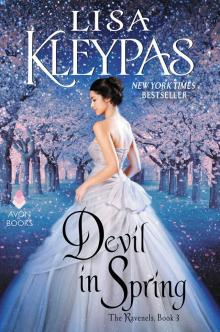 Devil in Spring
Devil in Spring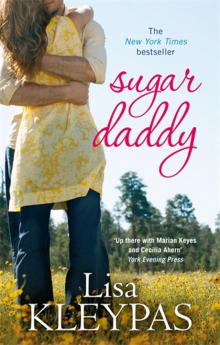 Sugar Daddy
Sugar Daddy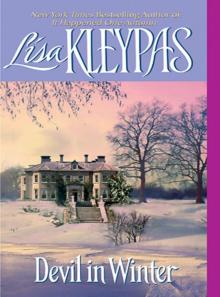 Devil in Winter
Devil in Winter Dreaming of You
Dreaming of You Christmas Eve at Friday Harbor
Christmas Eve at Friday Harbor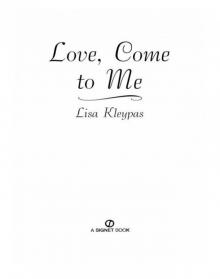 Love, Come to Me
Love, Come to Me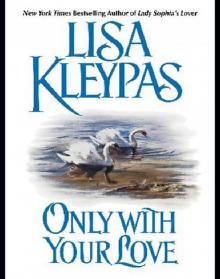 Only With Your Love
Only With Your Love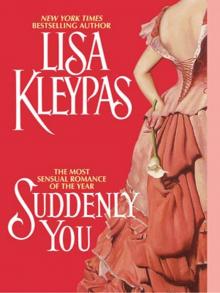 Suddenly You
Suddenly You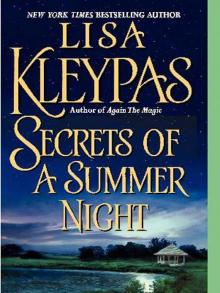 Secrets of a Summer Night
Secrets of a Summer Night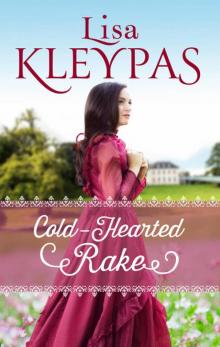 Cold-Hearted Rake
Cold-Hearted Rake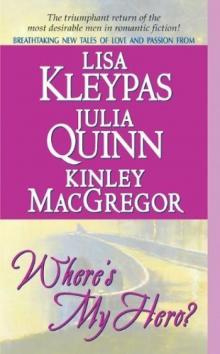 Where's My Hero?
Where's My Hero?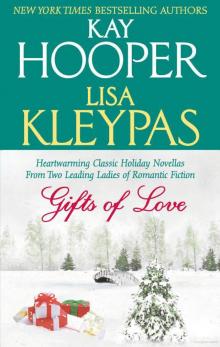 Gifts of Love
Gifts of Love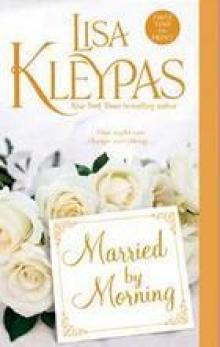 Married by Morning
Married by Morning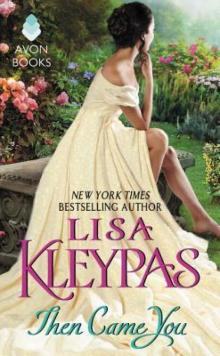 Then Came You
Then Came You Wish List
Wish List Where Dreams Begin
Where Dreams Begin A Historical Christmas Present
A Historical Christmas Present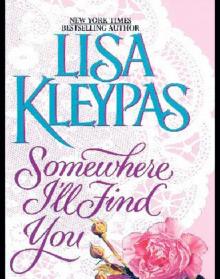 Somewhere I'll Find You
Somewhere I'll Find You Scandal in Spring
Scandal in Spring Someone to Watch Over Me
Someone to Watch Over Me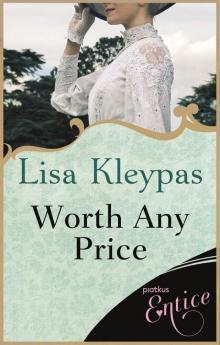 Worth Any Price
Worth Any Price Prince of Dreams
Prince of Dreams It Happened One Autumn
It Happened One Autumn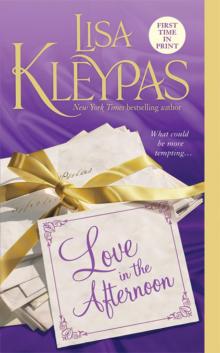 Love in the Afternoon
Love in the Afternoon Devil's Daughter
Devil's Daughter A Wallflower Christmas
A Wallflower Christmas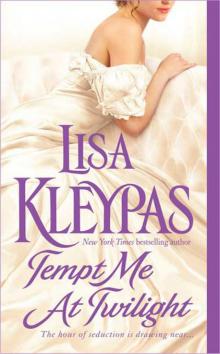 Tempt Me at Twilight
Tempt Me at Twilight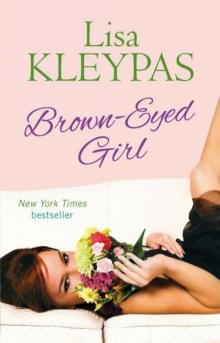 Brown-Eyed Girl
Brown-Eyed Girl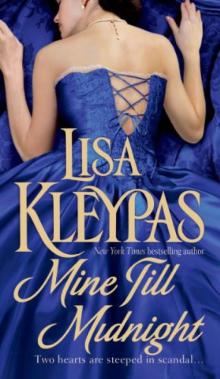 Mine Till Midnight
Mine Till Midnight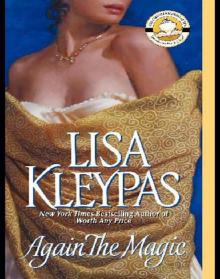 Again the Magic
Again the Magic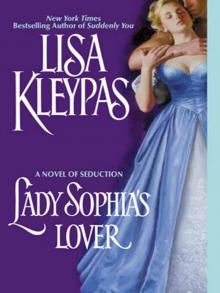 Lady Sophia's Lover
Lady Sophia's Lover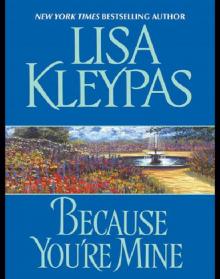 Because You're Mine
Because You're Mine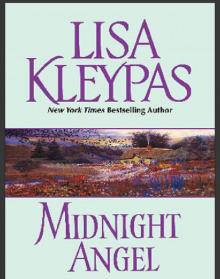 Midnight Angel
Midnight Angel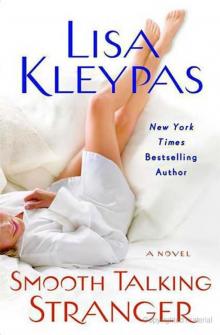 Smooth-Talking Stranger
Smooth-Talking Stranger Blue-Eyed Devil
Blue-Eyed Devil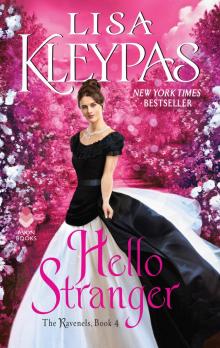 Hello Stranger
Hello Stranger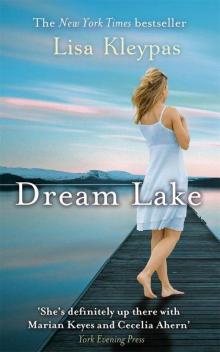 Dream Lake
Dream Lake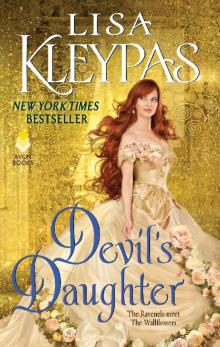 Devil's Daughter: The Ravenels Meet the Wallflowers
Devil's Daughter: The Ravenels Meet the Wallflowers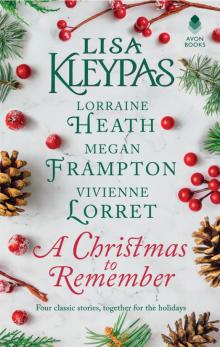 A Christmas to Remember
A Christmas to Remember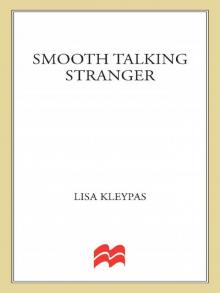 Smooth Talking Stranger
Smooth Talking Stranger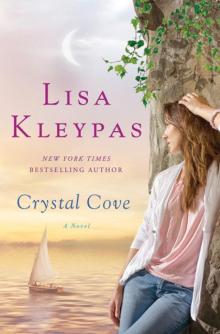 Crystal Cove
Crystal Cove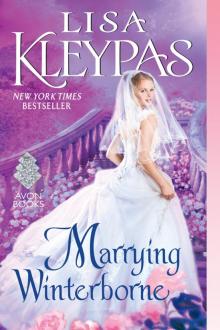 Marrying Winterborne
Marrying Winterborne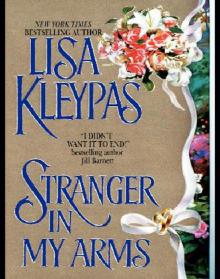 Stranger in My Arms
Stranger in My Arms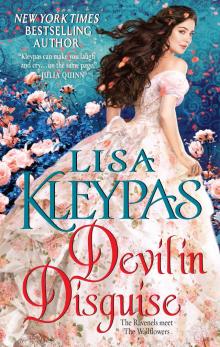 Devil in Disguise
Devil in Disguise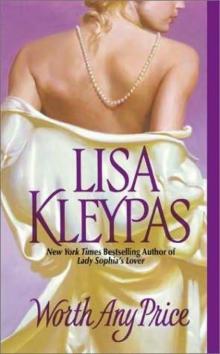 Worth Any Price bsr-3
Worth Any Price bsr-3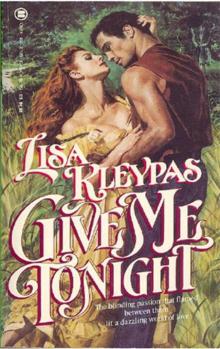 Give Me Tonight
Give Me Tonight Rainshadow Road fh-2
Rainshadow Road fh-2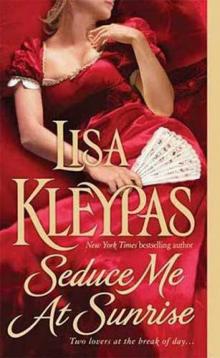 Seduce Me At Sunrise
Seduce Me At Sunrise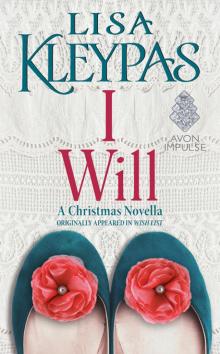 I Will
I Will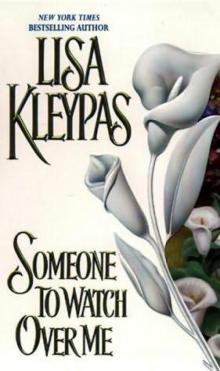 Someone to Watch Over Me bsr-1
Someone to Watch Over Me bsr-1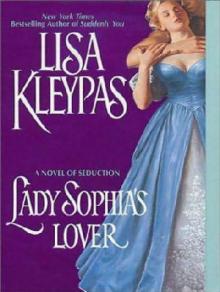 Lady Sophias Lover bsr-2
Lady Sophias Lover bsr-2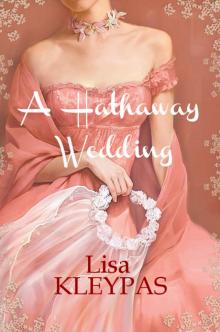 A Hathaway Wedding
A Hathaway Wedding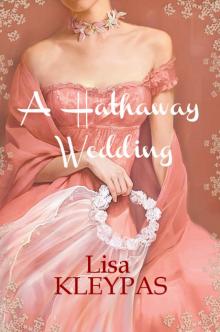 A Hathaway Wedding (Hathaways Bk2.5)
A Hathaway Wedding (Hathaways Bk2.5)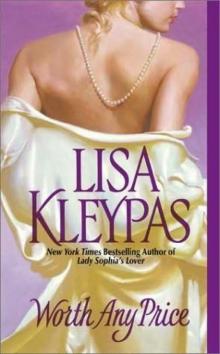 Worth Any Price - Bow Street 3
Worth Any Price - Bow Street 3 Christmas with Holly
Christmas with Holly